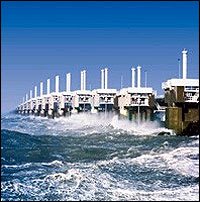We Dutch: always subject of Scorn and Admiration

Dutch history
The other day I read an account written by an English fugitive in Holland some time in 1619, reflecting both a clear contentment with the Dutch environment of religious tolerance and the general spirit of freedom, but also some serious concern about the behaviour of our children. Whatever the general merits of Dutch self government, tolerance and freedom, some English migrants held clear misgivings about the “licentiousness of youth in that country" and “the general immorality of Dutch youth and how they cared little for a personal relationship with God” (source: Bradford Smith’s biography of Pilgrim William Bradford). The writer was a member of the group that sailed on to America and later became known as the Pilgrim Fathers.
Holland experienced an astonishing success both as an economic power and as a center of science and art at the time. It was our Golden Age. We were greatly admired, but we also attracted the scorn of many serious people, who frowned at our social habits.
In many ways this is a theme that runs through our entire history. And it is true in equal measure, that in periods of stagnation or decline, our behaviour - whether towards children or towards other aspects of our social or religious lifestyle – stifled at the same time.
Duality of discipline and tolerance
So really, I have come to think of this duality as an essential characteristic of who we are as a people, and perhaps more broadly speaking, of the key ingredients of prosperity in general. Shouldn’t we think of social chaos – to a degree – as a fundamental prerequisite to progress?

Today, the Dutch are subject to similar criticism as the one expresssed some four hundred years ago. We are considered too permissive, we have legalized drugs (soft drugs that is), we allow Mosques to be built almost everywhere, whereas we are still supposed to be a (European) Christian nation; we allow for the greatest sexual freedom (or degradation), and our social system seems too tolerant to really stimulate people to get back to work etcetera.
Well, let’s say that we do address those issues. We are not ignoring them. Some of them do cause grave concern. But the last thing we will do is to resort to authoritarian measures to ‘solve’ them. We won’t.

Our country has emerged out of a fundamental adversary: the tides of the North Sea. Later on our main adversaries were European autocrats who thought they could rule a country that already was too much accustomed to rule itself. Even our Orange monarchy is a direct result of it, and not a contradiction to it.
Craddle of freedom in the greater world
Furthermore, we may seem chaotic and permissive to a degree, but otherwise I believe Holland is one of the most tightly run and well organized countries in the world. For us there is no alternative. Our country has too few acres to do it otherwise, but our population equals that of Australia.
I am not saying that we are miraculous in any way. But don’t mistake us for just a small country somewhere in Europe. Our minds and ambitions have been trained to largely carry us beyond our own borders, speak other languages, invest in other countries. We are the craddle of Republicanism that now governs the United States – thanks to the Pilgrim Fathers and those who followed. We don’t need admiration, nor do we need scorn. It is much more interesting to try and understand us.


0 Comments:
Post a Comment
<< Home